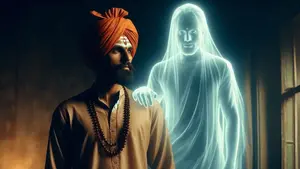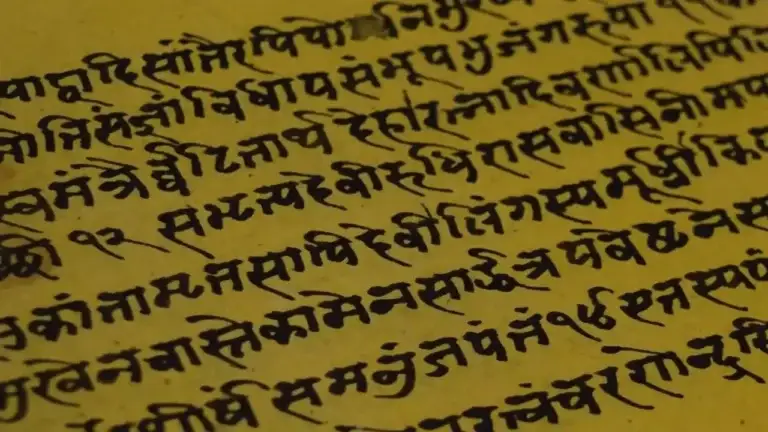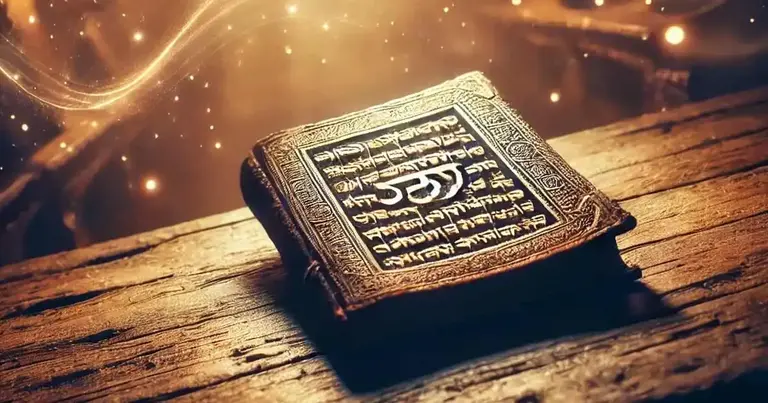Hindus don’t know what is Atma!
In Hindu philosophy, the Ātman represents the eternal, unchanging self that resides within every individual. Distinct from the physical body and mind, it is the true essence that connects us to the ultimate reality, Brahman. Exploring the nature of Ātman offers profound insights into self-realization and our spiritual journey beyond the material existence.

Despite frequent discussions about Atma in everyday life, many people misunderstand this concept, relying on flawed ideas that circulate within society. The concept of the soul, as commonly understood, is not explicitly outlined in the key Sanatan scriptures.
ma (आत्मा ) is a Sanskrit word which can be broken into two: ‘at’ (आत) which means beyond or towards and ‘ma’ (मा) means myself. This means Atma is something beyond me and also, towards me. When the word ‘Atma’ or ‘Atman’ is used, it is generally referred to the consciousness which we also call ‘Brahm’.
This word is used to give you a perspective that the consciousness, whom we refer to as God, is beyond our understanding but when we start acknowledging that the reality of this world is not as it appears and it is just based on the perception of our senses, we get closer to Atma i.e. our own consciousness.
With this being said, people who failed to look through this world started using the word Atma for their own ego. We all have heard phrases like “Aatma ko thandak mil gayi”, “meri Aatma tadap uthi”, “meri Antara Atma se awaaz ayi” etc. They are saying that they have an Atma which is struggling, talking to them or getting pleased because of the stuff that takes place around them. In reality, it’s them whom is struggling or seeking pleasure. Due to this, our rishis had to further distinguish ‘Atma’ with ‘Paramatma’ or ‘anatman’.
Now in the Bhagavad Gita Chapter 2 from Shlok 11 to 30, Krishn never even uses the word ‘Atma’ in the shlokas. He refers to something with ‘it’ or ‘this’ or ‘that’ however, our translators did not notice the context of the discussion and straightaway replaced all ‘its’ and ‘thats’ with Atma. This led to the popular belief among Hindus that they have an Atma which never dies, takes rebirth, is permanent and is not of this world. Due to such beliefs, people also have further superstitions about ghosts and they believe ghosts exist, some promise that they have seen the ghosts, while some offer help to set them free and keep those ghosts away. Even if I agree that Krishn did refer to Atma in those shlokas, he said that it is invisible, immovable, beyond this world and was forever here. Now the below questions come to the logical mind:
– When a person dies, how does the soul look like that person if it is unattached to this world?
– How does the soul still has the memory of the previous body?
– How does the ghost have the scars of the dead person and how is it even visible?
– Why is the ghost wandering while the soul is immovable?
– Why is the soul not getting salvation and is being said that it is forever here?
Now let’s see the context where Krishna talked about ‘that’, Arjun repeatedly said that “I don’t want to fight the war because of everyone in my family being involved in it, the godly figures like Guru Dronacharya and Bheeshma Pitamaha are highly respected in my eyes and killing them will be a crime.” He said, “I won’t fight because I don’t want to be victorious with such consequences and no piece of land or wealth can fulfill the emptiness of losing them.” Krishn saw that Arjun is deeply lost in his desires of protecting the elderly, his family and the society due to which he targets at it directly. He says:
B.G 2.12 – Never was there a time when I did not exist, nor you, nor all these kings; nor in the future shall any of us cease to be.
The living beings can be identified with their desires of what they want and what they do if they get it or not. Such desires are constant in this world and hence, there was no time when the desires did not exist. The desire first came in Atma or Brahm or consciousness to create a world within itself.
BG 2.13: Just as the embodied desire continuously passes from childhood to youth to old age, similarly, when the body dies, similar desires takes it’s place in the form of another body. The wise are not deluded by this.
When we age, our body changes and so does our desires. The person is constantly changes and we only attach ourselves to the image of them we have created in our mind. When someone dies, we still have the similar desires floating around ourselves in other bodies. Thus, the wise does not get deluded.
BG 2.16: Everything in this world is inconsistent and temporary, there is nothing permanent. This has verily been observed and concluded by the seers of the Truth, after studying the nature of both.
BG 2.17: That which pervades the entire body, know it to be indestructible. No one can cause the destruction of the imperishable desires.
The life, in any shape or form, is only possible because of the desire to survive. This is embodied in every living being and human being a complex animal has the most complex set of desires. Now, the world that we see is ever changing and perception based and our desires keep changing based on our environment.
This idea of the soul is not specific to Hindus, it can be seen in Christianity and also in Islam (who is going to heaven if the body is buried?). Why is that the case, you may ask? When humans first started to think about their life, they looked at the skies for answers. Whatever they did not find the answer to, they made up all kind of stories to justify it. They knew that humans had ancestry, so they also knew that they have come from their fathers, grandfathers and great-grandfathers. They knew about procreation and hence, they figured that the upcoming generation is coming from the womb of the mother and the semen of the father but they didn’t know where did their elderly go after death, so they thought that it must be the stars. Why? Because all of their gods who caused meteor showers, thunderstorm, rains, eclipse were above and if they had created the humans, they would certainly take them back after death. Time changed and religions evolved but we didn’t leave this story too far away. Sanatan Dharm showed the path of enlightenment and freedom while staying alive but our tribalism keeps us grounded gazing at the stars.
One response to “Hindus don’t know what is Atma!”
-
nicely written
One comment
-
nicely written



Leave a Reply